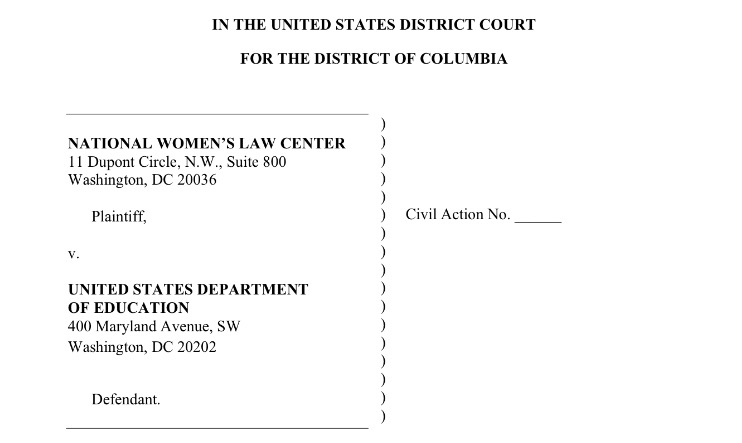Abortion rights, women of color, and LGBTQIA+ people are under attack. Pledge to join us in fighting for gender justice.
Courts Continue to Slam the Trump Administration’s Decision to Include Citizenship Question in 2020 Census

Multiple lawsuits have challenged the inclusion of a citizenship question in the 2020 Census, another court struck down the decision, and the Supreme Court will even take up the issue. It’s a lot over one short question.
Here’s why this is important.
What is the U.S. Census and why does it matter?
A constitutionally mandated program, the national census happens every ten years and is the cornerstone of our democracy. The population data from the census informs how congressional districts are drawn as well as how much and where federal government dollars go. In fact, the federal government uses census-derived data to direct at least $800 billion annually in federal assistance to states, localities, and families through at least 300 programs.
A full, fair, and accurate census results in the collection of useful, objective data about the nation’s people, housing, economy, and communities. It is vitally important because data affects so many aspects of government action and, ultimately, people’s lives. For example, census data informs how much money goes to a state for basic infrastructure upkeep – like roads and highways – as well as funding for key benefits programs that are vital to low-income women and families.
If it’s about accurate data, why is asking about citizenship status a problem?
Unfortunately, the Trump-Pence Administration jeopardized the accuracy of the 2020 Census when U.S. Secretary of Commerce Wilbur Ross proposed including a citizenship question in the census form that goes to every U.S. household. In other words, Trump wants the Census Bureau to ask every person in every household in the nation to indicate whether or not they are a citizen of the United States. If added, this question will likely exacerbate the undercounting of people of color, young children, and LGBTQ people, both immigrants and citizens as well as increase the inaccuracy and cost of the 2020 census.
Moreover, this question isn’t legitimately necessary. Instead, it’s another attack by this administration against immigrant communities, especially low-wage immigrant communities of color. Adding this question is a huge deal because the question of citizenship has not been asked of every household since 1950. For all of these reasons, NWLC submitted comments last August and today strongly opposing the inclusion of a citizenship question.
How we’re fighting back with our amici
In addition to our comment, last summer, NWLC joined over 150 other grassroots, advocacy, labor, legal services, and other organizations in an amicus brief supporting New York as they sued the U.S. Department of Commerce about the inclusion of the citizenship question. Secretary Ross claimed that the Department of Justice (DOJ) said they needed this data to enforce the Voting Rights Act (VRA). But documents obtained through litigation show that in fact, Ross was the one who wanted to include the citizenship question for political reasons, and he asked the DOJ to send Commerce the request for citizenship data under the pretense of VRA enforcement.
In January, the New York district court judge blocked the Commerce Department from including the citizenship question in the 2020 Census, calling Secretary Ross out on his lie. The judge from the New York case blasted Ross for violating several federal rules, cherry-picking facts, and ignoring evidence from Census Bureau experts to support his politically-charged view on citizenship data. And then last week, a district court judge in San Francisco ruled that Ross acted in “bad faith” by adding the citizenship question, violating the Constitution and two federal laws—the Administrative Procedure Act and the Census Act.
The Supreme Court will hear oral arguments for the New York case in April and may also take up the constitutional issue from the San Francisco case. We firmly believe the Supreme Court should uphold these well-reasoned district court opinions and prohibit the Commerce Department from including the citizenship question on the final 2020 Census form.
How you can fight back
Getting the 2020 Census right is important for everyone – particularly people of color, young children, and LGBTQ people, both immigrants and citizens, who are most likely to be undercounted. Congress must take swift action to remove the citizenship question from the 2020 Census so that census preparations can begin without this current cloud of uncertainty. Learn more about how to #SavetheCensus at https://censuscounts.org/.







